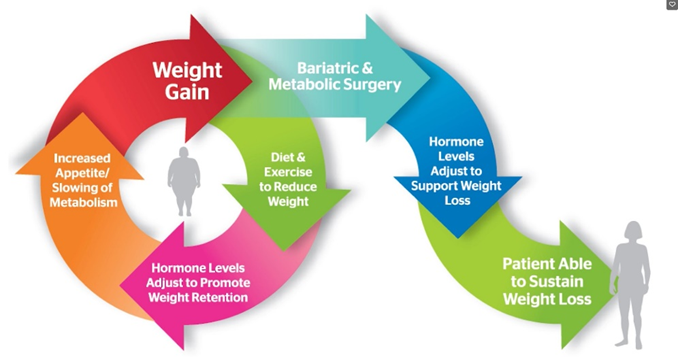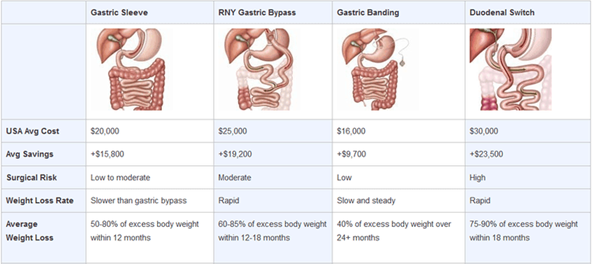
Weight loss surgery, also known as bariatric surgery, is a medical procedure aimed at helping individuals lose weight when traditional methods such as diet and exercise have not been effective. It’s often recommended for people with severe obesity or those facing serious health risks due to excess weight.
WHY CONSIDER WEIGHT LOSS SURGERY?

Obesity can lead to serious health conditions like type 2 diabetes, high blood pressure, heart disease, sleep apnea, and joint problems. For individuals with a Body Mass Index (BMI) of 40 or higher or 35 with obesity-related health issues, weight loss surgery may be a life-changing option.
TYPES OF WEIGHT LOSS SURGERY

1. GASTRIC BYPASS: This involves creating a small pouch at the top of the stomach and connecting it directly to the small intestine. It reduces the amount of food one can eat and limits calorie absorption.
2. SLEEVE GASTRECTOMY: In this procedure, a large part of the stomach is removed, leaving a smaller, banana-shaped stomach. It limits how much food you can eat and reduces hunger hormones.
3. ADJUSTABLE GASTRIC BAND: A band is placed around the upper part of the stomach to create a small pouch. The band can be adjusted to control food intake.
4. BILIOPANCREATIC DIVERSION WITH DUODENAL SWITCH (BPD/DS): A more complex surgery that reduces stomach size and bypasses a large part of the intestines.
BENEFITS

– Significant weight loss
– Improvement or resolution of diabetes, hypertension, and other health problems
– Enhanced mobility and energy
– Improved mental health and self-esteem
RISKS AND CONSIDERATIONS
Like all surgeries, weight loss surgery carries risks, including infection, blood clots, and complications from anesthesia. Long-term, patients must commit to strict dietary changes and regular follow-ups. Nutritional deficiencies can occur and may require lifelong supplements.
Weight loss surgery is not a quick fix, but a tool that can support major health improvements when used responsibly. It requires commitment to lifestyle changes, but for many, it opens the door to a healthier, more active life. Always consult a qualified healthcare provider to explore if it’s the right choice for you.
By: Adenola Eniola.

